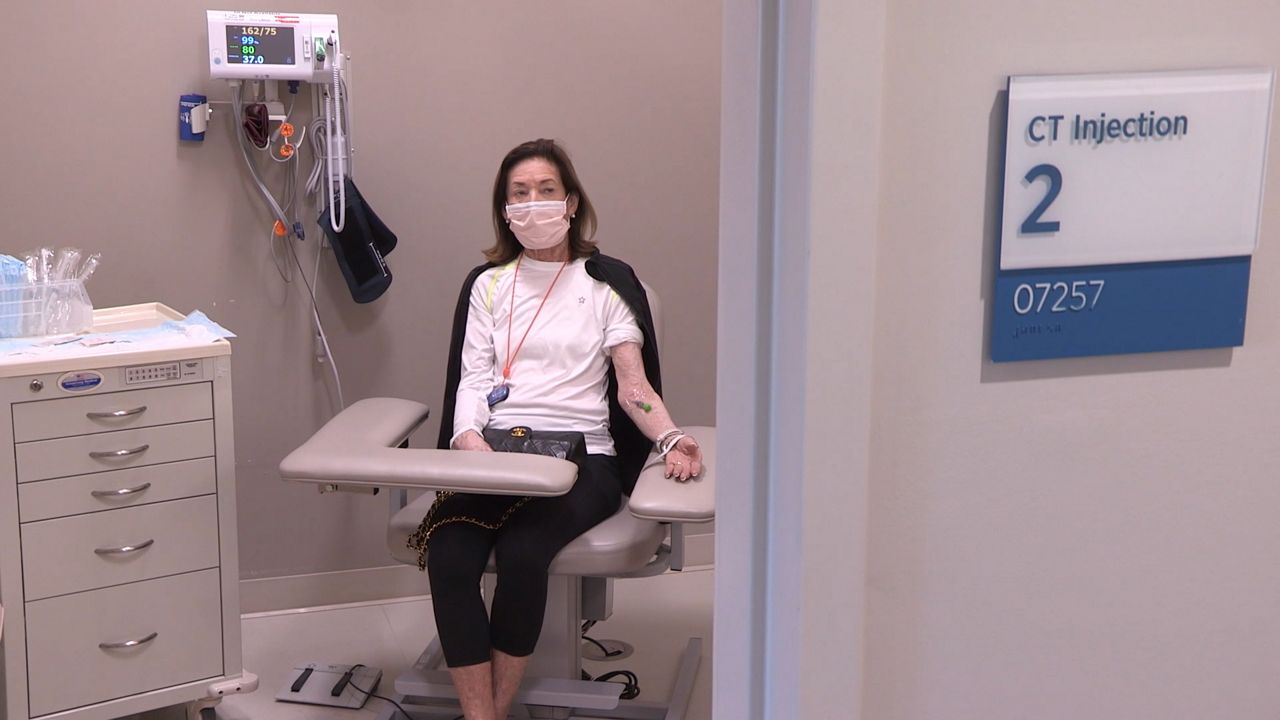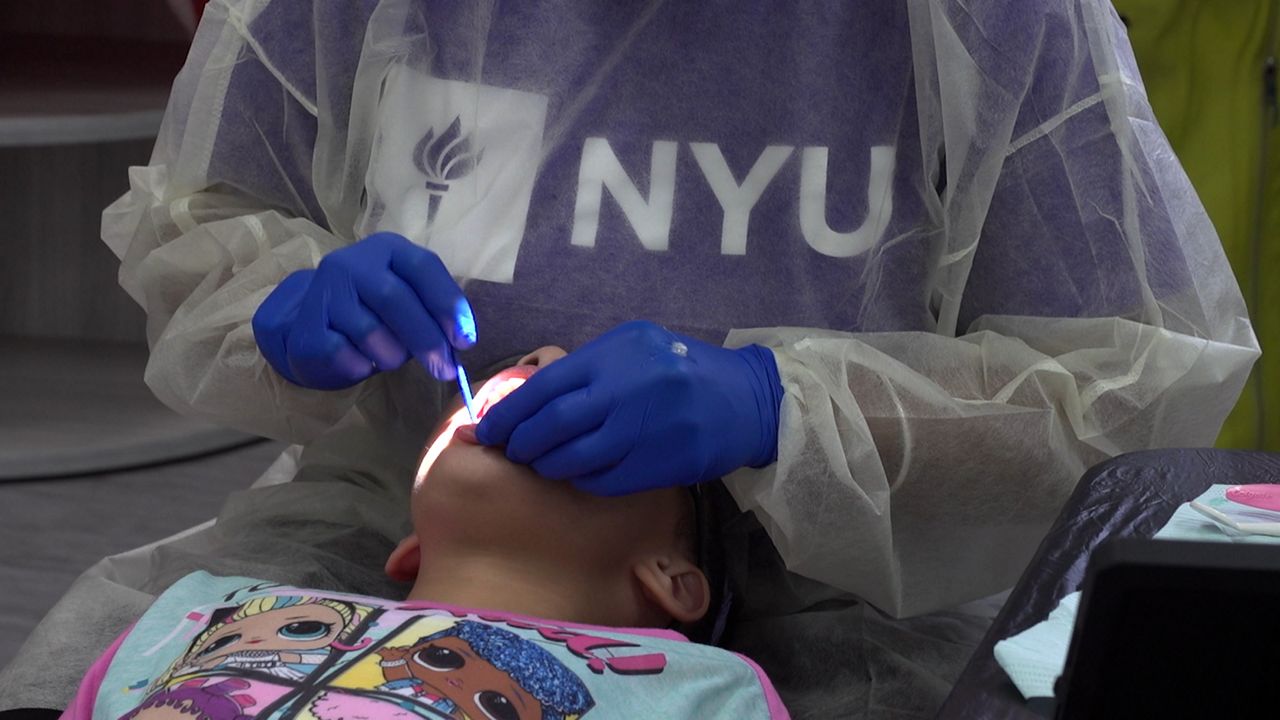The number of people diagnosed with skin cancer continues to rise each year- even as awareness of the risk grows. The most deadly form of skin cancer- melanoma, also continues to rise… but with advances in treatment, fewer are dying. National Health Reporter Erin Billups takes a look at a newly FDA-approved treatment using immunotherapy, that is offering many new hope.
A routine ultrasound during a mammogram appointment offered a disappointing discovery for Nancy Schroeder, a mass in the lymph nodes of an armpit. She was already a skin and breast cancer survivor.
“Of course, everyone's thinking breast cancer again, because it's in the same lymph node area. I was stunned when my internist said melanoma. I got melanoma from what?” said Schroeder.
The cancer had spread from a melanoma removed from her back four years earlier. “I'd forgotten about this thing on my back. And one little cell can travel. Any kind of cancer that metastasizes.”
Which is why Schroeder jumped at the chance to take part in a clinical trial at the Memorial Sloan Kettering Cancer Center, for a combination immunotherapy treatment training the body to fight the cancer before removing the tumor. It was her second time taking part in a clinical trial at MSK. The first was during her bout with breast cancer.

Dr. Michael Postow is Chief of Melanoma Service at MSK. He said typically the growth is removed first and then the patient undergoes chemotherapy, radiation and-or immunotherapy.
“Nancy's situation is such that if we just did surgery alone, there would be a high risk of it coming back over the years after that surgery. So I thought that her risk was sufficient, that we needed to do something else,” said Postow.
The two drugs, relatlimab and nivolumab, were FDA approved for use in melanoma patients, in part because of the results from the MSK and MD Anderson Cancer Center trial that Schroeder participated in.
“More than half of the patients had complete destruction of all of their melanoma tumors and very favorable rates of non-recurrence after surgery. So I think that's really good. And the other important thing is that these patients did not have side effects that really prevented their surgery,” said Postow.
The combination of drugs are delivered as a single intravenous shot- manufactured by Bristol Myers Squibb. Branded Opdualag,TM it is part of a class of drugs called checkpoint inhibitors. T cells have natural checkpoints, which limit their effectiveness. It is a safety precaution- preventing the immune system from fighting off healthy skin and tissue.
“Checkpoints keep the T cells from fighting too hard. Now, what we're doing with the immune therapy drugs are blocking those checkpoints because we want to give those T cells an extra boost,” said Postow.
It also means immunotherapy could trigger autoimmune side effects, which Schroeder experienced. She is still on medication to counteract the symptoms. But she said in the face of worsening melanoma, it was worth the risk.
“When the results came back, all the melanoma in that biopsy was dead,” said Schroeder.
Postow removed what was left of her dead tumor. Three years later, Schroeder remains cancer free. She said she will continue to keep a close eye on her health.
“I've been very lucky. Both tumors were very small. And why is that? You got to catch it early. You have to catch it early,” said Schroeder. “It's not that we found the cure, but we're on the brink of very effective treatments for most major cancers. I really think so.”
Trials are underway to test the treatment on those with earlier stage cancers.
“That's where I think we want to ultimately be,” said Postow. “If we could prevent these early stage cancers from coming back with drugs that are able to be given without too much side effect, I think that would be great.”









